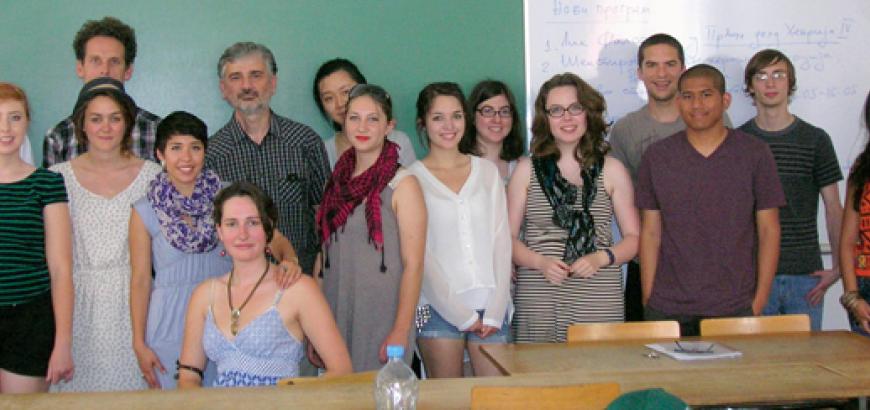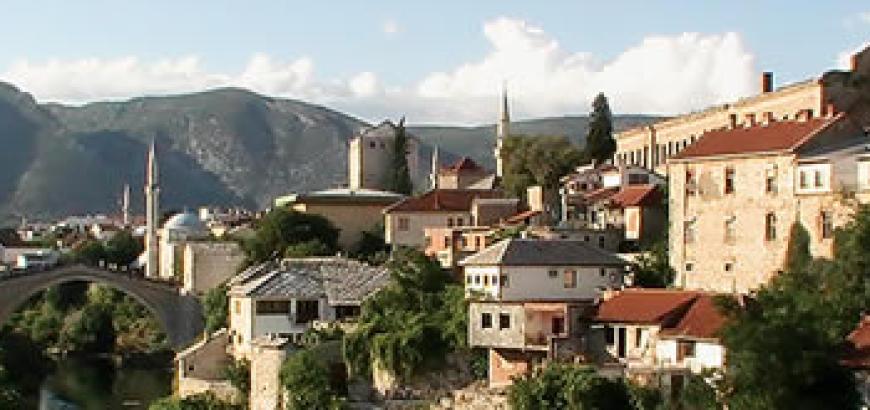Summer 2014 will see the tenth offering of Bosnia, Croatia, Serbia, and the EU: A New Era For All? sponsored by the departments of English and the Comparative History of Ideas (CHID). The course, co-directed by Norman Wacker (English) and Zorica Wacker (CHID), examines life after the Yugoslav conflict. UW students and local experts revisit the short, unhappy invention of sectarian fracture in the former Yugoslavia and the role of great powers in the peace and postconflict transition. The experience challenges many myths about the Balkans as a region of endemic backwardness and conflict, offering an alternative account of a Yugoslav cultural borderland in which peoples and ideas circulated throughout the Cold War.
The publics of Bosnia, Croatia, and Serbia wish, like much of Eastern Europe in transition, to share the political stability and prosperity of the European Union. However, the processes of postconflict transformation and democratic transition have imposed a long period of reform and capacity building. The last several years provide strong evidence that these changes can take place peacefully and democratically. At the same time, strains of postconflict nationalism will continue to compete for the dominant position in public debate and electoral politics as will continued casting about for strong postsocialist identities.
The new ultranationalist order contested in words and ideas is the center of our program focus. During our 2013 program, Croatian accession to the EU led by ardently antinationalist Foreign Minister Vesna Pusi was finalized. Strides toward EU negotiation by Serbia took place that few would have predicted after the center-right election results of 2012. A brief citizen’s movement in Bosnia, “The Baby Revolution,” in 2013 may have instigated a movement throughout Bosnia in 2014 for constitutional reform. We have found these strains of diversity in the writings of Danilo Kiš, Dubravka Ugreši, and David Albahari, portraits of identity wrested from ceaseless exchange with the states and cultures of powerful neighbors. The capstone in 2013 was a visit from Muharem Bazdulj, whose biography spans the conflict and postconflict divide, who spoke to our group about the legacy of Ivo Andric’s “Letter from 1920” for his own “The Other Letter,” a rich homage in speech and text to threads more enduring and various


